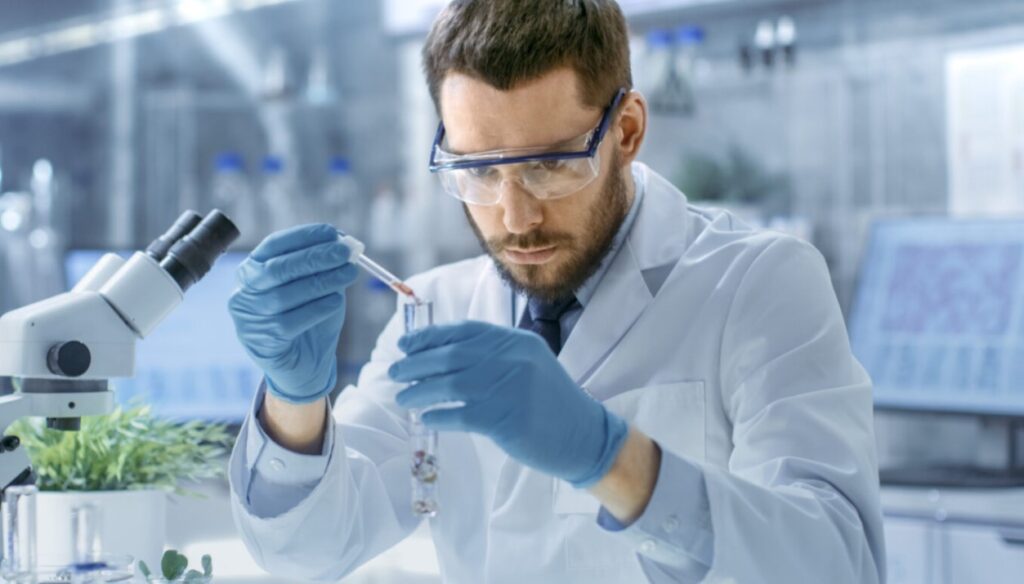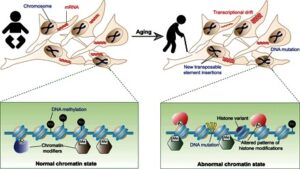
As we push the boundaries of science and technology, the dream of extending human life is becoming an increasingly tangible reality. At BitsAge.com, we are at the forefront of exploring the latest advancements in life extension, focusing on how innovations in organ regeneration and genetic manipulation are not only redefining healthcare but also offering new avenues for economic growth and societal development. This article delves into the importance of these cutting-edge methods, extending their potential beyond kidney health to the broader scope of organ regeneration, genetic innovation, and their implications for the future of humanity.
The Crucial Role of Organ Regeneration in Life Extension
One of the most promising fields in the quest for life extension is organ regeneration. Our organs naturally deteriorate with age, leading to a range of health problems that shorten lifespan and reduce quality of life. Traditional medicine has focused on treating symptoms and managing chronic diseases, but what if we could replace or rejuvenate these organs entirely? This is where organ regeneration comes into play, offering the potential to significantly extend human lifespan by addressing one of the root causes of aging: organ failure.
Kidney Regeneration as a Model: The kidney is a prime example of how regenerative medicine can revolutionize healthcare. Chronic kidney disease (CKD) is a leading cause of death worldwide, and the ability to regenerate kidney tissue using stem cells or even create entirely new kidneys through cloning could drastically improve survival rates and overall quality of life. This approach goes beyond simply treating the disease; it offers the possibility of restoring kidney function to a youthful state, effectively reversing some of the effects of aging.
Expanding to Other Organs: The principles behind kidney regeneration can be applied to other organs as well. Research is ongoing in the fields of heart, liver, and lung regeneration, with the goal of growing these organs in the lab using a patient’s own cells. This would eliminate the risk of organ rejection and could provide a renewable source of healthy organs as people age. The ability to replace aging organs with new, fully functional ones could be a game-changer in the quest for life extension, offering a practical solution to one of the most significant challenges of aging.
Genetic Innovation: The Blueprint for Longevity
While organ regeneration addresses the physical aspects of aging, genetic innovation targets the underlying biological processes. Advances in genetic manipulation, particularly through technologies like CRISPR-Cas9, are enabling scientists to edit genes associated with aging and disease, potentially delaying or even reversing the aging process.
Preventing Age-Related Diseases: Many chronic diseases, such as cardiovascular disease, diabetes, and neurodegenerative disorders, have a genetic component. By editing these genes, we can reduce the likelihood of developing these conditions as we age. This not only extends lifespan but also improves the quality of those additional years by reducing the burden of chronic illness.
Enhancing Organ Function: Genetic manipulation can also be used to enhance the function of regenerated organs. For example, by editing genes to increase resistance to oxidative stress or improve cellular repair mechanisms, we can create organs that not only last longer but also perform better than their natural counterparts. This approach could lead to significant improvements in healthspan—the period of life spent in good health—as well as lifespan.
Addressing the Fundamental Causes of Aging: Beyond treating specific diseases, genetic innovation holds the promise of addressing the fundamental causes of aging at the cellular level. By targeting processes like cellular senescence (where cells stop dividing and begin to secrete harmful substances) and telomere shortening (the gradual loss of protective DNA sequences at the ends of chromosomes), scientists are working to slow down or even reverse the aging process itself. This could lead to a future where people not only live longer but also maintain their vitality and quality of life well into old age.
Broader Applications: Beyond Human Health
The implications of organ regeneration and genetic innovation extend far beyond individual health. These technologies have the potential to drive significant economic growth and societal development, with applications in a variety of fields.
Agriculture and Environmental Sustainability: The same genetic manipulation techniques used to extend human lifespan can also be applied to plants and animals, offering solutions to global challenges such as food security and environmental sustainability. For example, genetically modified crops that are more resistant to pests, diseases, and extreme weather conditions could help ensure a stable food supply in the face of climate change. Similarly, genetically engineered animals that are more resilient to disease or have improved growth rates could contribute to more sustainable livestock production.
Economic Growth Through Biotechnology: The development of organ regeneration and genetic therapies is driving growth in the biotechnology sector, creating high-paying jobs and new industries. As these technologies become mainstream, they could reduce healthcare costs by decreasing the prevalence of chronic diseases and the need for long-term care. Countries that invest in life extension research and development could see significant economic benefits, positioning themselves as leaders in the global biotechnology market.
Collaborative Research and Innovation: Life extension research requires collaboration across multiple fields, including medicine, biotechnology, genetics, and even environmental science. By fostering cross-disciplinary collaboration, we can accelerate the development of new technologies and solutions that benefit both human health and the environment. This collaborative approach not only drives innovation but also ensures that the benefits of life extension are widely distributed, contributing to global economic and social progress.
The Path Forward: Encouraging Research and Investment
To realize the full potential of organ regeneration and genetic innovation, it is crucial to encourage investment and collaboration in this field. Governments, private investors, and academic institutions must recognize the importance of these technologies for extending human life and improving societal well-being.
Policy Support and Funding: Governments should implement policies that support research in regenerative medicine and genetic therapies, providing funding and resources to accelerate development. Public-private partnerships can also play a key role in bringing these technologies from the lab to the clinic, ensuring that they are accessible to those who need them.
Public Engagement and Ethical Considerations: As we push the boundaries of what is possible, it is important to engage the public in discussions about the ethical implications of these technologies. Issues such as access to life extension treatments, the potential for genetic inequality, and the long-term impacts on society must be carefully considered. By fostering an open and inclusive dialogue, we can ensure that advancements in life extension are implemented in a way that is ethical, equitable, and beneficial for all.
Global Collaboration for a Healthier Future: The pursuit of life extension is a global endeavor, requiring collaboration across borders and cultures. By working together, we can pool resources, share knowledge, and accelerate the development of life-saving technologies. This global approach not only enhances the potential for success but also ensures that the benefits of life extension are shared by all, contributing to a healthier, more prosperous world.
Conclusion: A New Era of Longevity
At BitsAge.com, we believe that the future of life extension lies in the integration of organ regeneration and genetic innovation. These technologies offer the promise of not only extending lifespan but also enhancing the quality of life as we age. By focusing on the renewal of our bodies at both the organ and genetic levels, we can unlock new possibilities for longevity and wellness.
The journey to longer, healthier lives is just beginning, and the advancements in organ regeneration and genetic manipulation are key steps along this path. With continued research, collaboration, and investment, we can turn the dream of life extension into a reality that benefits individuals, economies, and societies worldwide.
Investing in the Future: The pursuit of life extension is not just a scientific endeavor—it’s an investment in the future of humanity. By supporting research and development in this field, we can create a world where people live longer, healthier lives, free from the burdens of chronic disease and aging. This is the future that we at BitsAge.com are working towards, and we invite you to join us on this exciting journey.
This article for BitsAge.com highlights the transformative potential of organ regeneration and genetic innovation in extending human lifespan. By exploring the broader applications of these technologies and their economic impact, it emphasizes the importance of continued research, collaboration, and investment in the field of life extension, positioning it as a key driver of future societal progress and economic growth.

![heralding-a-new-era-of-rna-therapeutics-358345-960x540[1]](https://blitzage.com/site/wp-content/uploads/2024/08/heralding-a-new-era-of-rna-therapeutics-358345-960x5401-1-300x169.jpg)




